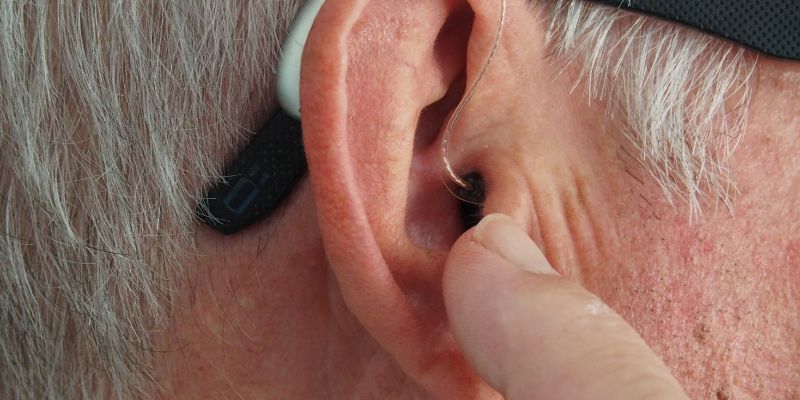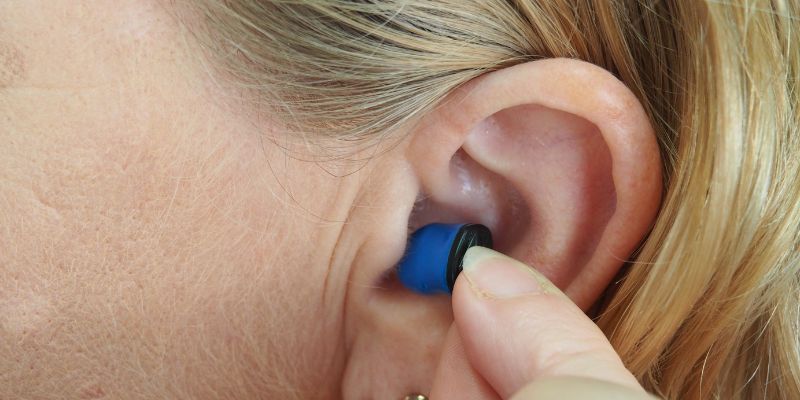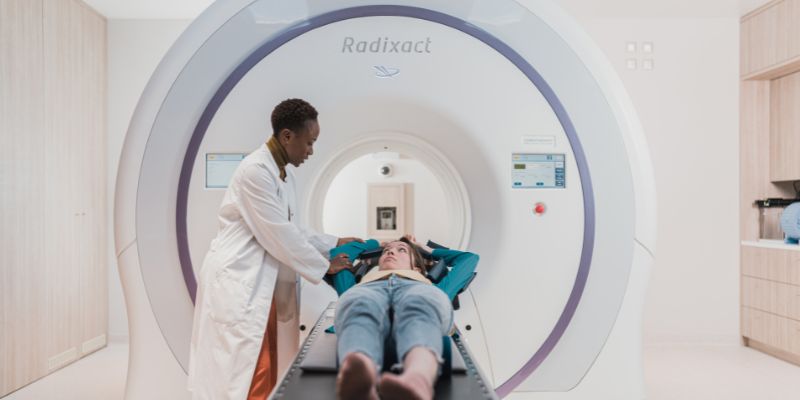A significant global population is affected by Parkinson's disease (PD). The disease's wide array of motor and non-motor symptoms underscores the need for timely diagnosis and treatment. The timely identification of a disease might potentially decelerate its progression and improve the overall well-being of the individual. Nevertheless, identifying the first indicators of PD might pose a significant difficulty. In this study, we investigate the proposition that epilepsy and hearing impairment may serve as potential early indications of PD. The objective is to enhance the frequency of PD diagnosis and treatment by promoting awareness of these symptoms that are often not adequately reported.
Importance of Early Detection in PD Management

There are many significant rationales for the need for early diagnosis of PD. While a definitive treatment for PD remains elusive, many therapeutic interventions have been developed to mitigate the adverse effects of the condition on patients' quality of life. When initiated at an early stage of the disease, these therapeutic interventions have the highest probability of achieving favorable outcomes.
Explanation of Hearing Loss and its Connection to PD
The impact of hearing loss, whether gradual or abrupt, may significantly affect an individual's overall well-being and quality of life. There are several potential factors contributing to the occurrence of hearing impairment; nevertheless, emerging data indicates a potential association between hearing loss and PD.
The association between hearing impairment and PD is complex and remains little comprehended. Conversely, it is postulated that this phenomenon arises from shared neurodegenerative mechanisms that affect both the auditory and motor systems.
Research and Studies Linking Hearing Loss and PD
Despite substantial research on the association between hearing loss and PD, the underlying mechanisms remain undetermined. The following are few noteworthy discoveries and subjects of interest:
1. Shared Neural Pathways
Recent research has shed light on the intriguing correlation between auditory impairment and PD, maybe attributable to the overlapping neural pathways implicated in both illnesses. Significantly, hearing and motor abilities share the same brain circuits and chemicals, with dopamine playing a particularly crucial role. The established deterioration of brain circuits in PD may potentially impact auditory function. The potential co-occurrence or early indication of PD may be associated with hearing impairment, as a result of the interplay between two neurological mechanisms.
2. Prevalence of Hearing Loss
Interestingly, research has shown a higher prevalence of hearing impairment among those diagnosed with PD compared to those without PD. The notable disparity in the prevalence of hearing loss prompts inquiries on the potential correlation between these two phenomena. The aforementioned findings underscore the significance of recognizing hearing loss as a possible first symptom or coexisting PD. Nevertheless, more investigation is required to elucidate the specific mechanisms behind this association.
3. Temporal Relationship
It is noteworthy that several studies have established a correlation between hearing impairment and an elevated susceptibility to manifest motor symptoms associated with PD. The onset of PD symptoms has been associated with hearing loss, hence sparking interest in its potential use as a prognostic indicator for the condition. Healthcare practitioners have the potential to improve patient outcomes and quality of life by identifying hearing loss as an early indicator of PD and taking appropriate action based on this knowledge.
Epilepsy: A Potential Early Indicator

Seizures, characterized by transient and involuntary electrical disturbances in the brain, are a distinguishing characteristic of the neurological disorder known as epilepsy. Emerging research suggests a potential association between epilepsy and PD, despite their distinct pathological manifestations. Several studies indicate a positive correlation between PD and epilepsy, since both conditions exhibit disruptions in brain functionality, hence increasing the likelihood of co-occurrence.
Scientific Research Supporting the Epilepsy-PD Connection
Numerous studies have been conducted to explore the correlation between epilepsy and PD. A significant finding pertains to the shared pathogenic mechanisms involving abnormal brain activity and abnormalities in neurotransmitters in both illnesses. For example, the neurotransmitter dopamine, which plays a crucial role in PD, may possibly have an influence on epilepsy if its concentrations experience variability. Several studies have also shown a heightened prevalence of seizures in individuals diagnosed with Parkinson's disease, especially in the latter stages of the condition. Conversely, there exists evidence indicating that those diagnosed with epilepsy may be at an increased risk of developing PD.
Role of EEG and Other Tests in Identifying Early Signs
Electroencephalography (EEG) is a widely used diagnostic modality utilized for the identification of epilepsy as an initial manifestation of Parkinson's disease. Electroencephalography (EEG) is a neurophysiological technique used to monitor and analyze brain activity, with the potential to identify deviant patterns associated with epilepsy. Subtle alterations in electroencephalogram (EEG) measurements have the potential to indicate an individual's predisposition to developing epilepsy in individuals with PD, much in advance of the manifestation of motor symptoms.
Individuals who possess indications suggestive of PD may potentially get advantages from additional diagnostic measures, such as neuroimaging techniques like magnetic resonance imaging (MRI) and testing of cerebrospinal fluid. The timely detection of epilepsy in association with PD is of utmost importance due to its potential to provide proactive treatment and medication, hence potentially mitigating the progression of both conditions.
Commonalities and Distinctions
It is intriguing to see that hearing loss, epilepsy, and Parkinson's disease (PD) exhibit the same risk factors. Age is a significant determinant for all three illnesses. The incidence of hearing loss, epilepsy, and Parkinson's disease all exhibit an upward trend in correlation with advancing age. Moreover, it is noteworthy that genetic factors play a significant role in the manifestation of all three illnesses, suggesting that there may be common genetic predispositions that contribute to the co-occurrence of these conditions.
Differentiating PD-Related Hearing Loss and Epilepsy from other Conditions
While there may be shared risk factors between hearing loss, epilepsy, and PD, it is crucial to differentiate the symptoms of these conditions from those of other illnesses. The manifestation of hearing loss in individuals with PD and age-related hearing loss (ARHL) may exhibit distinct characteristics. In addition to Parkinson's disease, epilepsy may arise due to other factors, including genetic predisposition or traumatic brain injury. A comprehensive medical evaluation is necessary to discern the unique characteristics of each condition and choose the optimal therapy and management strategies.
Importance of Comprehensive Medical Evaluation
A comprehensive medical evaluation is crucial due to the potential overlap and distinctions that may exist between hearing loss, seizures, and Parkinson's disease. Individuals experiencing auditory difficulties, seizures, or impaired motor function are advised to seek medical evaluation in order to ascertain or exclude the presence of these illnesses. This examination may use many diagnostic procedures such as audiometry for assessing hearing loss, electroencephalography (EEG) for detecting epilepsy, and clinical assessments for evaluating PD. Prompt and accurate diagnosis is crucial in enhancing the quality of life for those affected by these conditions.
Conclusion
It is important to comprehend the intricate relationship between auditory impairment and epilepsy in order to facilitate the prompt identification and management of PD. The presence of shared risk factors across several illnesses underscores the need for a more comprehensive approach to the diagnosis and treatment of these conditions. As researchers endeavor to elucidate the precise mechanisms that connect different illnesses, it is imperative to emphasize the need for a comprehensive medical evaluation. The enhancement of the well-being of individuals grappling with intricate neurological disorders is contingent upon the timely identification, categorization, and treatment thereof.




